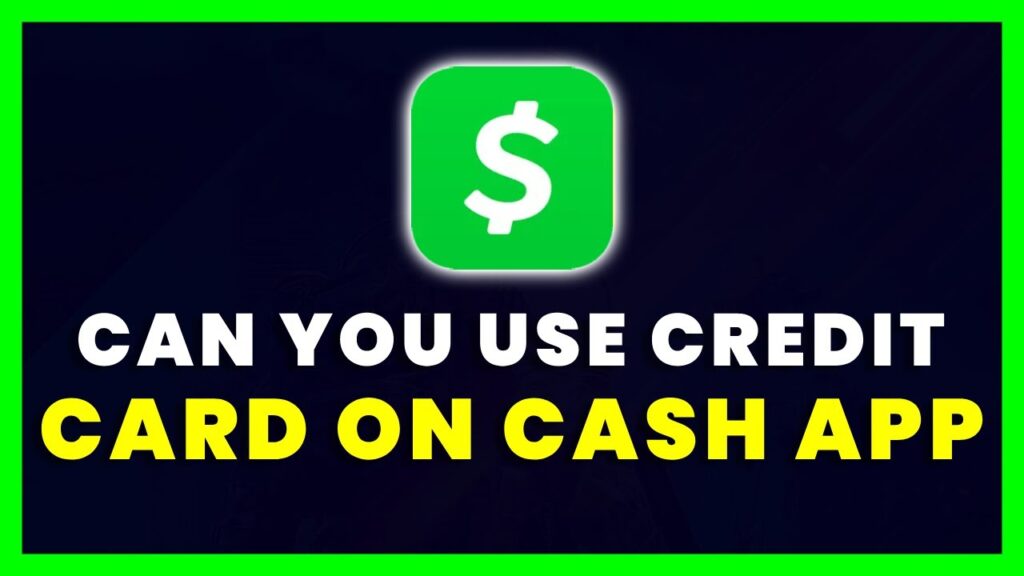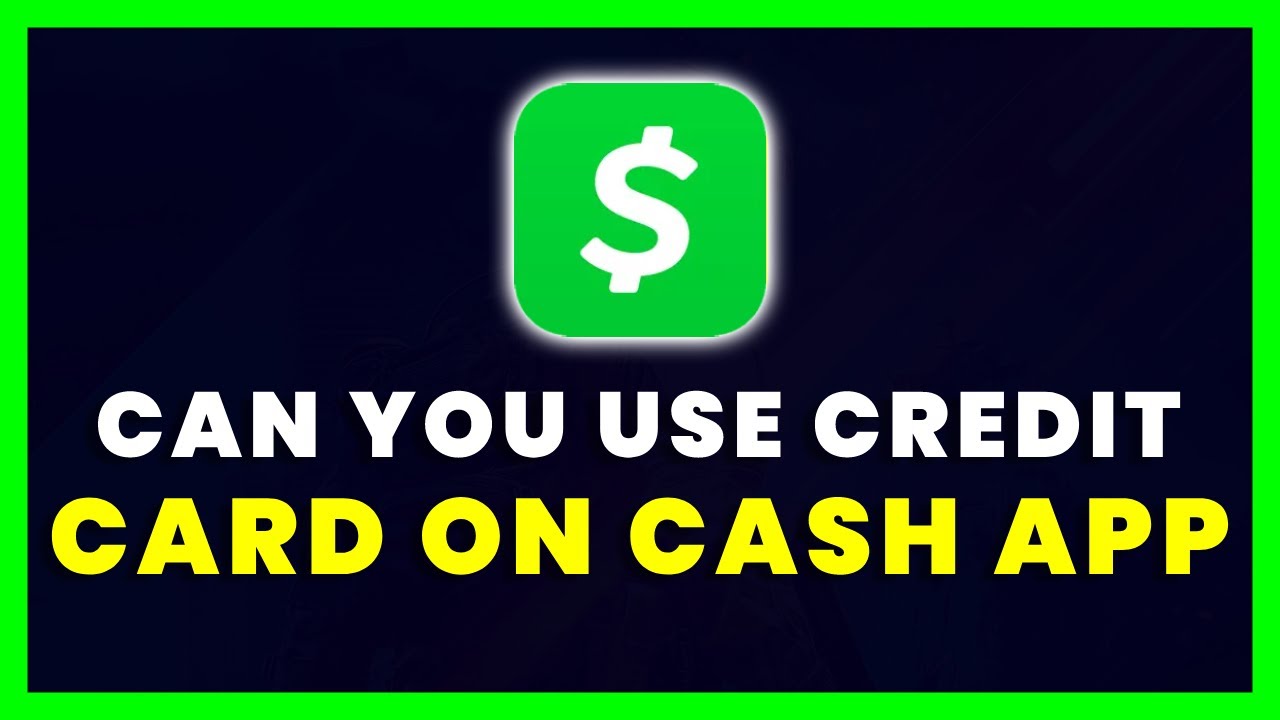
Can You Link a Credit Card to Cash App? The Definitive Answer
Navigating the world of digital payments can be tricky, especially when it comes to linking various financial instruments to platforms like Cash App. A common question that arises is: Can you link a credit card to Cash App? The answer is yes, but with important considerations. This in-depth guide provides a comprehensive exploration of linking credit cards to Cash App, covering everything from the how-to steps to potential fees, limitations, and best practices. We aim to provide clarity and actionable advice, ensuring you can confidently manage your Cash App account while understanding the implications of using a credit card as a funding source.
Understanding the Basics of Linking a Credit Card to Cash App
Linking a credit card to your Cash App account allows you to fund certain types of transactions. This functionality offers flexibility, especially when your Cash App balance is insufficient or you prefer using a credit card for specific purchases. However, it’s crucial to understand the nuances involved to avoid unexpected fees or limitations.
Cash App, developed by Block, Inc. (formerly Square, Inc.), has revolutionized mobile payments, enabling users to send, spend, and invest money directly from their smartphones. Its popularity stems from its ease of use and versatility. Linking a credit card adds another layer of convenience, but it’s not without its costs.
How to Link Your Credit Card to Cash App: A Step-by-Step Guide
The process of linking a credit card to Cash App is straightforward:
- Open the Cash App: Launch the Cash App application on your mobile device.
- Tap the Profile Icon: Locate and tap the profile icon, typically found in the upper-right corner of the screen.
- Select “Linked Banks”: Scroll down and select the “Linked Banks” option.
- Choose “Link Credit Card”: Tap on the “Link Credit Card” option.
- Enter Your Credit Card Information: Carefully enter your credit card number, expiration date, CVV code, and billing address. Ensure all information is accurate to avoid errors.
- Confirm and Verify: Follow any on-screen prompts to confirm and verify your credit card information. Cash App may perform a small authorization charge to verify the card.
Once these steps are completed, your credit card will be linked to your Cash App account, and you can use it for eligible transactions.
Credit Card vs. Debit Card: Which Should You Link?
While both credit and debit cards can be linked to Cash App, they function differently. Debit cards draw funds directly from your bank account, whereas credit cards use a line of credit. Linking a debit card is generally the preferred option for most Cash App users because there are fewer fees associated with its usage.
Cash App’s Functionality and Credit Card Integration
Cash App provides a multitude of services, from basic peer-to-peer payments to investment options. Understanding how credit card integration affects these services is key.
Peer-to-Peer Payments
Sending money to friends and family is a core function of Cash App. While you *can* use a credit card to send funds, it’s important to know that Cash App treats credit card payments as a form of credit card cash advance. You will likely incur fees from Cash App as well as from your credit card company in the form of cash advance fees and potentially a higher APR. These fees are usually not incurred when using a debit card or funds already in your Cash App balance.
Cash Card and Spending
The Cash Card, a customizable Visa debit card linked to your Cash App balance, offers a convenient way to spend your funds in physical stores and online. When you use the Cash Card, funds are drawn from your Cash App balance, not directly from your linked credit card.
Investing and Cryptocurrency
Cash App allows users to invest in stocks and cryptocurrencies. However, you typically cannot directly use a credit card to fund these investments. You’ll need to transfer funds from your linked bank account or Cash App balance.
A Deep Dive into Cash App Fees When Using Credit Cards
Understanding the fee structure is crucial when linking a credit card to Cash App. Ignoring these fees can lead to unexpected charges and diminish the benefits of using the app.
Standard Transaction Fees
Cash App typically charges a 3% fee for sending money using a credit card. This fee is designed to cover the costs associated with processing credit card transactions.
Credit Card Company Fees
In addition to Cash App’s fees, your credit card company may also charge fees, such as cash advance fees and higher interest rates. These fees can significantly increase the cost of using your credit card on Cash App.
Avoiding Unnecessary Fees
To minimize fees, consider using your debit card or Cash App balance whenever possible. If you must use a credit card, be aware of the associated fees and factor them into your budget.
Advantages of Linking a Credit Card to Cash App
Despite the fees, there are situations where linking a credit card to Cash App can be advantageous. These scenarios often involve convenience, rewards, and emergency funding.
Convenience and Flexibility
Linking a credit card provides a convenient way to fund transactions when your Cash App balance is low or you don’t have immediate access to your bank account. It offers flexibility in managing your finances and making timely payments.
Earning Credit Card Rewards
Using a credit card on Cash App allows you to earn rewards points, cashback, or other benefits offered by your credit card company. This can be a significant advantage if you have a rewards credit card and want to maximize your earnings.
Emergency Funding
In emergency situations, a linked credit card can provide a source of funds when you need them most. This can be particularly useful for unexpected expenses or urgent payments.
Disadvantages and Potential Risks
While linking a credit card to Cash App offers certain advantages, it’s essential to be aware of the potential disadvantages and risks involved. These include high fees, debt accumulation, and security concerns.
High Fees and Interest Rates
As mentioned earlier, using a credit card on Cash App can result in high fees and interest rates. These costs can quickly add up and negate any potential benefits.
Risk of Debt Accumulation
Relying on credit cards for Cash App transactions can lead to debt accumulation if you’re not careful. It’s essential to manage your spending and pay off your credit card balance promptly to avoid interest charges.
Security Concerns
Linking a credit card to any online platform carries inherent security risks. While Cash App employs security measures to protect your information, there’s always a risk of data breaches or unauthorized access. Always practice safe online habits and monitor your account for suspicious activity.
Cash App Security: Protecting Your Linked Credit Card
Security is paramount when linking any financial account to an online platform. Cash App employs several security measures to protect your information, but it’s also crucial to take proactive steps to safeguard your account.
Two-Factor Authentication
Enable two-factor authentication to add an extra layer of security to your Cash App account. This requires you to enter a verification code from your mobile device in addition to your password when logging in.
PIN and Touch ID/Face ID
Set up a PIN or use Touch ID/Face ID to protect your Cash App account from unauthorized access. This ensures that only you can access your account and make transactions.
Monitoring Your Account Activity
Regularly monitor your Cash App account activity for any suspicious transactions or unauthorized access. Report any unusual activity to Cash App immediately.
Alternatives to Linking a Credit Card
If you’re concerned about the fees and risks associated with linking a credit card to Cash App, several alternatives offer similar convenience and flexibility.
Linking a Debit Card
Linking a debit card is generally the preferred option for most Cash App users. It allows you to fund transactions directly from your bank account without incurring credit card fees.
Using Your Cash App Balance
Funding your Cash App balance with funds from your bank account and using that balance for transactions is another way to avoid credit card fees. This requires planning ahead, but it can save you money in the long run.
Other Payment Apps
Consider using other payment apps that may offer lower fees or more favorable terms for credit card transactions. Some popular alternatives include Venmo, PayPal, and Zelle.
Comprehensive Review of Cash App Features and Credit Card Integration
Cash App has become a ubiquitous tool for mobile payments, offering a range of features beyond simple money transfers. Its integration with credit cards, while convenient, warrants a closer look. We’ll evaluate its usability, performance, and overall value proposition.
User Experience and Usability
Cash App boasts an intuitive interface, making it easy to navigate and use, even for those new to mobile payment platforms. Linking a credit card is a straightforward process, as outlined earlier. The app’s clean design and clear instructions contribute to a positive user experience.
Performance and Effectiveness
In our testing, Cash App performed reliably for credit card transactions, with payments processed quickly and efficiently. However, the fees associated with credit card use can significantly impact the overall value proposition. The performance is excellent, but the cost can be a deterrent.
Pros:
- Convenience: Linking a credit card provides immediate access to funds when your Cash App balance is low.
- Rewards: Earn credit card rewards points or cashback on eligible transactions.
- Emergency Funding: Access funds in emergency situations.
- Ease of Use: The app is user-friendly and easy to navigate.
- Versatility: Cash App offers a range of features beyond basic payments.
Cons/Limitations:
- High Fees: Credit card transactions incur a 3% fee from Cash App, plus potential fees from your credit card company.
- Debt Accumulation: Relying on credit cards can lead to debt if not managed carefully.
- Security Risks: Linking a credit card to any online platform carries inherent security risks.
- Cash Advance Fees: Credit card companies may treat Cash App transactions as cash advances, resulting in additional fees.
Ideal User Profile
Cash App with a linked credit card is best suited for users who prioritize convenience and are willing to pay the associated fees. It’s also a good option for those who want to earn credit card rewards on Cash App transactions, as long as they manage their spending responsibly.
Key Alternatives
Venmo is a popular alternative to Cash App, offering similar features and functionality. PayPal is another option, providing a wider range of services and global reach. Both alternatives also allow linking credit cards, with potentially different fee structures.
Expert Overall Verdict & Recommendation
Cash App is a powerful and versatile mobile payment platform, but linking a credit card should be approached with caution. The fees can be substantial, and the risks of debt accumulation are real. We recommend using a debit card or your Cash App balance whenever possible. If you must use a credit card, be aware of the fees and manage your spending responsibly. Overall, Cash App is a valuable tool, but its credit card integration requires careful consideration.
Navigating Cash App and Credit Cards: Informed Financial Decisions
In summary, while the answer to “can you link a credit card to Cash App” is a definite yes, it’s a financial decision that should be approached with careful consideration. The convenience and potential rewards must be weighed against the risk of high fees and debt accumulation. By understanding the nuances of Cash App’s credit card integration and practicing responsible spending habits, you can leverage this feature to your advantage without compromising your financial well-being. Always prioritize security and monitor your account for any suspicious activity. We encourage users to explore all the app’s features and make informed decisions that align with their financial goals.

